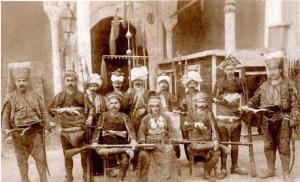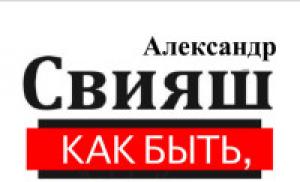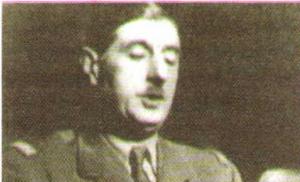Teamwork. Fundamentals of theory and practice
You were at the interview and didn't call yourself a "team player"? When asked by a recruiter: “What are your strengths?”, you did not answer that you know how to work in a team? If you left such an interview empty-handed, then the reason for the refusal lies on the surface.
Urgently work on fixing this annoying bug. First, do not forget to indicate in your resume that you know how to work in a team. Second, write in your resume cover letter that you are a team player. Thirdly, you must demonstrate your ability to cooperate and interact with other team members at all stages of the interview without fail.
Team work skill took second place in the ranking of TOP 10 skills,. Therefore, it is necessary to pay special attention to this skill and make every effort to get a high mark in the interview. In the article, I told you how to work on skill number 1 from this rating. Today you will learn how to show your ability to get along with all team members and achieve results together.
A list of questions, by answering which you will be able to demonstrate your teamwork skills.
Tell us about yourself.
What are your strengths?
What are your main achievements?
Why should we hire you?
Tell me about a successful project when you worked as part of a team.
Tell me about a time when you had to work with a difficult client.
Give examples of when you achieved results through teamwork.
What makes you a good employee/manager?
How would you define a productive environment for your employees?
To what do you think you owe your success?
Have you ever had a conflict with an employee?
Tell me about the last constructive feedback you received from your manager.
What makes you a good team player?
Here are a few qualities that characterize you as an employee who knows how to work in a team:
The desire to achieve common results
Listening skills
Respect for all team members
Appreciation of the work of colleagues
Communication skills
Ability to accept constructive feedback
High level of emotional intelligence
Empathy
ethical behavior
Determine for yourself whether "teamwork" is one of your strengths. Below are The main criteria for assessing this skill are:
- Employees are constantly asking for your help.
- People want you to join their project teams.
- You are often invited to dinner.
- They turn to you for help to get your opinion in a difficult situation.
- You are often the mediator in settling disagreements between colleagues.
- You may find a way to connect with a difficult client.
A team player is able to work productively with different personality types and can resolve conflicts and disagreements. A cohesive team can only be achieved if the achievement of common goals and objectives is much higher than the personal preferences and individual tasks of each team member.
How to show the skill of "teamwork" in the answer to the question
: What achievements are you most proud of?
To answer this question, you need to give examples of your achievements, as well as tell in detail how you achieved them. Talk about achievements that are directly related to your work. You may have taken on the task of preparing an event that others have turned down and successfully managed, or you may have been part of a team working on a major project. Do not exaggerate your contribution to any events - share this success with your colleagues and in the eyes of the interviewer you will look like a great team player. For example, you can answer like this:
« Although I think that my main achievements are yet to come, nevertheless I am very proud that I was involved in the creation of a new program for managers. I put a lot of effort and energy into being one of the members of this group and learned a lot in the process from my more experienced colleagues.”
What about those who do not have experience of working in a team?
For students and graduates or candidates with little work experience, it is very important to show the HR manager that you will be able to work in a team. If you have not yet had the opportunity to work in a team, then you should be ready to talk about participation in group projects, seminars, trainings, social work.
If you have limited experience with teamwork or feel like this is your weak point, there are easy ways to improve this skill.
Consider the following options for developing teamwork skills:
1
) Become a volunteer.
State your desire to work on multiple team projects. Take advantage of opportunities to participate in collaborative activities outside of work.
2) Find yourself a mentor.
Look around and find a person who is the "soul of the team." You can learn a lot just by watching and imitating him. If you start to observe more closely, you will notice that the people in the team play different roles - for example, one person is a motivator and inspires others, and the other is an active agent who is able to find a way to complete any task. Take the online test by R. M. Belbin "Team roles" and determine your role in the team. You can also use the wording of the answers of this test when preparing your own answers to the interview questions.
3) Evaluate yourself and colleagues.
Try to research yourself and your colleagues using well-known personality typologies such as the DISC Profile or the Myers-Briggs Indicator (MBTI). These personality assessments can be helpful in understanding your own preferences and those of others. For example, if your boss is a storyteller and you are a thinker, the test results will help you learn how to interact with this type of person and talk to him in his language of communication.
Working for any company is teamwork. But, unfortunately, conflicts often occur in teams. These conflicts, of course, can be resolved - today there are many ways to improve relations in the work team. But not all of these methods work. Teambuilding and games are considered one of the most effective ways. After all, it is in non-standard situations that people get closer more easily.
“The team is a single organism that unites individuals. Alone you can do a lot, together you can do anything!” The process of creating and supporting a team is the very meaning of team building training (corporate trainings).
Corporate trainings have proven themselves as a formula for solving many situations that arise in the organization of work with the company's personnel. Corporate training allows you to increase the productivity of the team by increasing the motivation of employees, improving the quality of their decisions and improving interaction in the process of work. Corporate team building is not only training, but also a combination of original training sessions with recreation. Corporate teambuilding trainings will help to build relationships and eradicate many problems in any team. Corporate team building training is most effective if:
- It is necessary to teach employees to work in a coordinated and coordinated manner.
- The company undergoes major reorganizations, mergers, recruitment or reduction of staff.
- You need to establish communications between the central office and the regions, between departments or specialists of the same unit.
- It is necessary to resolve the conflict between managers and subordinates in the company.
- It is necessary to maintain friendly relations in the team, to give the participants the opportunity to get to know each other in an informal setting.
- The company has a lot of new employees and they need to adapt to the existing team.
- During a conference or strategic session, when it is necessary to make the communication of participants more free, to increase the atmosphere of trust in the team.
The main aspects of the concept of "team".
Command is a small group of people who complement and replace each other in the course of achieving their goals. The organization of the team is based on a well-thought-out positioning of participants who have a common vision of the situation and strategic goals and who own well-established interaction procedures. The team is evolving from a working group (Working Group), which is created to perform a particular type of activity, to a team of the highest quality (High Performance Team).
Working group 1+1=2
The working group achieves a result equal to the sum of the efforts of each of the participants. They use common information, exchange ideas and experiences, but each is responsible for his own work, regardless of the results of the activities of other members of the group.
Potential Team 1+1=2
This is, as it were, the first step in transforming a working group into a team. The main conditions will be:
- number of participants (6 – 12)
- having a clear goal and objectives
- a collaborative approach to achieving them.
As for the pseudo-team, it is usually created according to the need or the opportunity presented, but it does not create conditions for team interaction, does not focus on the development of common goals. Such groups, even if they call themselves a team, are the weakest in terms of the influence of their activities.
Real team 1+1=3
REFERENCE: Facilitation - highly professional organization of the process of group work, aimed at clarifying and achieving the group's goals.In the course of their development (natural or specially facilitated), team members become decisive, open, mutual assistance and support for each other prevails, and the effectiveness of the activity increases. A positive effect can also be the influence of their example of interaction in a group on other groups and the organization as a whole.
Super team 1+1+1=9
Not all teams reach this level - when they exceed all expectations and have a high level of influence on the environment.
This command is characterized by:
- high level of teamwork skills;
- division of leadership, rotation of roles;
- high level of energy;
- its own rules and regulations (which can be problematic for the organization);
- interest in each other's personal growth and success.
Top Quality Team Attributes:
- a shared vision that gives meaning to the activities carried out;
- ability to work within tight time frames;
- high level of communicative competence;
- activities outside the “comfort zone”;
- periodic performance reviews;
- general involvement;
- independent development of ways to achieve the goal and joint celebration of success on the way to achieving the goal.
How to create an effective team?
A team can be identified by a number of signs, the main of which are the following:
- It consists of two or more people.
- Team members, in accordance with the role assigned to them, participate to the extent of their competence in the joint achievement of the goals.
- The team has its own face, which does not coincide with the individual qualities of its members.
- The team is characterized by existing connections: both internal and external - that is, connections with other teams and groups.
- The team has a clear, orderly and economical structure, focused on achieving goals and accomplishing tasks.
- The team periodically evaluates its effectiveness.
Options for working in groups and teams
| Prefer to work alone or in groups: | Preferably work in teams: |
| To solve simple problems or "puzzles" | To solve difficult tasks or problems |
| When cooperation is satisfactory | When a decision needs consensus |
| When Diversity is Limited | When there is uncertainty and multiple solutions |
| When a problem needs to be solved urgently | When high commitment is needed |
| When a narrow range of competence is enough | When a wide range of competencies is required |
| If there is an unavoidable conflict of interests of the participants | If it is possible to achieve the goals of team members |
| When an organization prefers working with individuals | When an organization prefers the results of teamwork to develop a forward-looking strategy |
| When you need the best result | When a Diversified Approach Is Necessary |
On the way to becoming an effective and efficient team, each group goes through several stages. The team must overcome internal contradictions and doubts before a truly harmonious team is obtained.
Steps required to build a team
To create an effective team, at different stages of its existence, it is necessary to carry out a number of actions:
- select suitable employees;
- adjust the size of the team;
- jointly define goals and objectives;
- explain what benefits everyone will receive as a result of the successful activities of the team;
- agree on group norms;
- help team members get to know each other better;
- train team members;
- establish a control system and encourage self-control;
- ensure that team spirit is maintained;
- replace team members who are unwilling or unable (even after training) to act in accordance with the standards and agreed rules.
The most important steps in this process.
- Selection of suitable employees.
The effectiveness of the team largely depends on the personal qualities of its members and the relationship between them. Each member of the team must be ready to use their abilities and knowledge to solve the team task. Therefore, it is first necessary to carefully analyze the requirements for the upcoming work. Based on this, the level of competence is determined, which includes the knowledge, understanding, skills and personal qualities that team members should have. Particular attention should be paid to the ability to work together.
- Team size control.
What is the optimal team size? This simple question points to one of the primary problems that comes up when building a team. It would be most reasonable to have a team as small as possible in number, but so large that the competence of its members corresponded to the requirements of the task. Of course, you may not always be free to act freely, and you will not always have the opportunity to start building a team from scratch. It is easiest to work in a team consisting of two people, due to the ease of communication. In larger teams, people tend to have messy communications, which leads to disorganization and the feeling that a lot of time is wasted. With an increase in the size of the team, the number of interactions between its members grows even faster, which is confirmed by a simple mathematical ratio: the number of possible personal interactions between n members is n x (n- 1) / 2.
For example: subtract 1 from 10 team members, multiply by 10 equals 90, divide by 2 equals 45 relationships. If we keep in mind that every interaction contains potential conflict between its participants, with the size of the team, a greater predisposition to organizational difficulties becomes apparent. This is especially noticeable in teams consisting of 12 or more people, in which time losses are progressively growing and the effectiveness of using the participants' qualifications is decreasing. If your team has more than 12 people and this cannot be changed, it is advisable to regroup it, breaking it into subgroups and instructing each of them to perform part of the overall task facing the team.
- Clear setting of goals and objectives.
For a team to work effectively, all team members need to be aware of the links between goals, work methods, and objectives. Objectives should be clear, focused, and should provide a vision of the way work is done and the objectives that will lead to success. The formation of goals should be carried out by the participants themselves, and it does not matter at what level this happens - personal, team or at the organizational level. These goals should form a thoughtful and realistic basis for objectives and methods, and not be a simple list of prescriptions that logically follow from the profile of the organization. For a clear statement and solution of tasks by the team, it is necessary to take into account the variety of expectations (often conflicting) provided by the team's goals.
Dilemmas related to goals should also be considered. For example, that, on the one hand, the range of problems should be clear, and on the other, that flexibility and variability are necessary to adapt to changing circumstances. It is difficult to expect that goals will always be clearly defined. Social, economic and political factors can cause sudden changes or force organizations to change constantly and relentlessly. The goals of the team should be the foundation of its activities, but significant external changes may lead to their revision. It should be remembered that each team member has their own individual goals and hidden intentions. Therefore, team members who obey the goals of the team can only agree with them to a greater or lesser extent. They may secretly disagree with the goals of the team, but obey them for some personal reason - for example, wanting to make money or build a career. Therefore, the decisive moment in goal setting and the main area of team management is: prevention of the possibility of conflict or collision between team and personal goals. For effective team performance, it is important that goals are achievable, measurable, and accepted or at least understood by team members and high-level leaders both inside and outside the organization.
Team Efficiency
It is impossible to formulate a complete and categorical set of rules, following which will necessarily lead to the creation of an effective team. The reasons for the team's success are more complex.
However, the main elements of effective team work can be identified:
- satisfaction of personal interests of team members;
- successful teamwork;
- solution of tasks assigned to the team.
Summing up what has been said, it can be noted that well-organized teamwork can be achieved under the following conditions:
- Realistic, achievable goals are set for the team and individual participants.
- Team members and leaders strive to support each other in order to make the team successful.
- Team members understand each other's priorities and help or support when difficulties arise.
- Open communication: new ideas, new methods of improving work, raising new problems, etc. are welcome.
- The return on work is more significant, as team members understand what is expected of them, and can independently control their activities.
- Conflict is understood as a normal event and seen as an opportunity to solve problems. Problems, if they are openly discussed, can be solved before they become destructive.
- A balance is maintained between the productivity of the team and the satisfaction of the needs of individual members.
- The team as a whole and individual participants are rewarded for results and effort.
- Participants are encouraged to try their hand and come up with new ideas.
- Team members understand the importance of disciplined work and strive to behave in accordance with team standards.
Formation of an effective team
The effective team building program is designed to form a real team from employees. The technology of constructing the program takes into account the laws of development of the group dynamics of small groups, this implies both a certain sequence of exercises and adjustment of the complexity of tasks. Thanks to this approach, the participants are given maximum opportunities for the disclosure and manifestation of their personal and organizational qualities.
In the process of performing exercises - in a playful, modeling form, various aspects of intra-group interaction are worked out:
- distribution of roles;
- development of a joint solution;
- team responsibility;
- movement towards a common goal;
- leadership;
- team support;
- decision making under limited time, etc.
Distinctive feature of the program: the emphasis in the program is on a deep analysis of the experience gained and the application of the acquired skills in real work situations.
An effective team building program is recommended to achieve the following goals:
- Development of effective ways of interaction in a team;
- Solving communication problems within the team;
- Analysis and resolution of conflict situations;
- Effective distribution of roles and responsibilities in the team;
- Identification of leaders, personnel potential in the team.
The goals of an effective team
Since goals are the core of an organization, the question is what goals an effective team sets for itself.
Such a team aims to operate effectively at five levels:
- interpersonal (interaction of team members);
- managerial (work with managers);
- social (intergroup);
- organizational (as a productive part of the organization);
- personal (understanding, motivation, personal growth).
There are five goals that must be met to create an effective team:
- Clarify and agree on the responsibilities of each.
- Develop cooperation, coordination and communication both at the intra-team and inter-team levels.
- Identify and resolve potential problems that may hinder their operations.
- Be open to new creative ways to solve problems.
- Set quality standards.
How to choose a teambuilding program (team building)?
Of course, the determining factor in choosing a team building program is the purpose of the event. The purpose of the event sets the format in which the entire program will be conducted. If you are faced with such an important task as a deep, serious analysis of intra-team relations, improving business communications, forming a common vision of goals and values, then you need to use the business training format (section "Strategic Team Building").
Often the goal of a teambuilding program is to bond, socialize, build team spirit, and relax. In this case, active team games are more suitable, giving a charge of positive and good mood. If you are faced with the task of developing creative abilities, finding non-standard ways to solve problems, self-expression - creative programs are ideal for this.
Of course, several goals can be combined within one event. For example, part of the team building program can be devoted to developing a mission and a common vision of goals, another part of the team building program can be devoted to active recreation and raising team spirit; And of course, don't forget about the festive part with a barbecue and incendiary music. We will talk more about the sections of team building in the next paragraph "Corporate rest".
Working as a team, you can complete those tasks that are too complex or time-consuming for one person. To do this, it is necessary that the efforts of all employees be directed towards achieving common goals, and at the same time, each of the team members must be able to think independently. Responsibility for all cases is also borne by the whole team, and not just one person. but teamwork is not a panacea for all the troubles in business: such an organization of work also has its drawbacks. What are the features of such work, and what are its pros and cons?
Teamwork is one of the types of delegation of authority. It is not at all necessary that the team consists of employees of only one level - the level and positions of its members may be different, but the rights and obligations for the duration of the team are the same for everyone. It is important that, despite the differences in positions, all team members have equal positions. Such equality in rights and responsibilities is the main principle of teamwork, and it allows a more objective assessment of the ability of employees to this form of work.
First of all, the following conditions are necessary for successful teamwork:
a) a clear statement of goals and objectives;
b) the correct selection of the team;
c) the presence of a well-thought-out system of work for team members;
d) the ability of team members to work collegially.
First, let's look at the benefits of working as a team.
1. During teamwork, the enterprise implements ideas that could not arise during normal work. This is explained by the fact that in the normal course of work, each individual employee does not have the right to go beyond his job duties and, accordingly, he cannot have the tools and levers to solve all problems.
2. This point is logically connected with the previous one. Teamwork allows you to solve problems that are beyond the power of one person.
3. When making a decision in a team, the opinions of all its members are taken into account.
4. As a result of the fact that specialists from different departments cooperate in the team, pressure from one of the higher authorities becomes impossible.
5. The fact that the team listens to the opinion of absolutely all its members ensures that all the nuances that deserve attention will definitely fall into the field of view of the team and will be taken into account. Therefore, the probability of making an erroneous decision is minimized.
6. This point follows from the previous one. The work of one team allows you to identify all the shortcomings in the work. The fact is that when one person is constantly responsible for the same area of work, then his eye is “blurred”, everything is painfully familiar to him, and he may lose sight of something. A fresh look from another person instantly reveals everything.
7. Teamwork enhances the willingness and ability of executives at all levels to cooperate.
8. An employee who has worked in a team becomes more loyal to colleagues, in the future it is easier for him to interact with colleagues, as well as with other departments of the company.
9. Working in a team brings up tolerance in its member, accustoms to order, teaches to respect other people's opinion and behave correctly during a discussion, to overcome selfishness. These factors affect the overall success of the firm.
11. Each member of the team, as well as the team as a whole, can open up as creatively as possible and realize their potential in practice.
12. For large firms, the team allows more rational use of the capabilities of their specialists who are working on solving problems that go beyond their job responsibilities.
13. For medium and small companies, teamwork allows the full use of the abilities, knowledge and skills of employees. The team can replace the work of specialists whom the firm cannot invite to work for financial reasons.
Now about the disadvantages that teamwork has.
1. Additional time required. The period of "grinding" team members to each other can be quite long. Some time is also required to find an appropriate form of joint work.
2. Team work is often slow. This is especially noticeable with a large team size and when working part-time in a team. Difficulties encountered in gathering team members at the appointed time have a negative impact on the progress of work.
3. Discussions that arise when working as part of a team take a lot of time, especially if individual employees do not know the technique of conducting them. Serious disagreements are possible.
4. Teamwork can lead to a delay in decision-making, as the different views of the participants are generalized only after lengthy discussions.
5. The anonymity of the results of the work of individual team members may adversely affect the desire to work. Any team member who has shown insufficient performance can “hide” behind an active member of team work. When working as a team, there is no incentive to feel ambitious, since the individual worker does not receive personal rewards for the results.
6. If an employee performs work as part of a team as an additional to the main activity, then it may be too much work for him. Therefore, it is necessary to take into account in each specific case whether this load is feasible, what tasks should be abandoned for the duration of work in a team.
Teamwork is almost always perceived as something extremely positive, because if you work together, there is an opportunity to achieve synergy and implement those projects and complete those tasks that would be too “unbearable” for one person. And the result in team work is achieved only when the efforts of all its members are directed in one direction. And the responsibility for all results is also borne by a group of people, and not just one person.
However, even when working in a team, each person can and should be able to think and work independently. In no case can a team game be considered a guarantee of getting rid of failures, especially when it comes to business, because the collective organization of labor has not only its advantages, but also its weaknesses.
So what are the features of teamwork, and what can be attributed to its positive aspects, and what to its disadvantages? Today we will try to answer these important questions.
A little about teamwork
First of all, it should be noted that teamwork is one of the forms. It is not necessary for the team to have employees of the same status - all team members can have their own positions and powers, but duties and rights should always be the same for everyone. And this is very important, because, despite the difference in status, all "players" should have the same positions.
As for the same duties and rights, this equality is a fundamental principle of teamwork, because through it, one can give an objective description of the potential of all team members in the form of activity under consideration.
And in order for the team to be successful, and its functioning to give the appropriate results, it is necessary that the following conditions are met:
- Competent
- Having clear and concise objectives
- Proper selection of team members
- Availability of a detailed system of work
- The ability of people to work in a team
And only if these conditions are met, we can say that teamwork makes sense. And, of course, the very first thing to consider is the benefits of teamwork.
The benefits of teamwork
Here we can point out the following advantages of working as a team:
- In the process of teamwork, such ideas are achieved that, most likely, would not even have arisen in the course of ordinary work. This can be explained by the fact that, working in standard mode, a person simply cannot go beyond the boundaries of his authority, which means that he does not have access to tools with which to solve all problems
- As we said at the very beginning, a team consisting of even 3-4 people is able to achieve much greater results than one person, which is due to the synergy effect, when the sum of the potential of individual elements is greater than the whole.
- If the team is created taking into account all the relevant ones, it will always take into account the thoughts, ideas and opinions of all its members.
- Due to the fact that the team, in most cases, is characterized by the cooperation of specialists from different organizational units (if we are talking about working in an organization), it becomes quite difficult, sometimes even simply impossible, to put pressure on the work of the team to any of the higher units.
- Due to the fact that each of the participants is accepted in the team, we can say that this is a guarantee that interesting ideas will certainly appear within the radius of the team, and when discussing them, the maximum number of details will be taken into account. Thus, the chances of error are significantly reduced.
- Teamwork is almost a 100% guarantee that any flaws will be identified in the activity. If one person is continuously responsible for a specific area of work, his vision is “clouded”, because everything is already becoming familiar to him, which is why he can simply miss many details. But when another person, or even several, looks at the same things, absolutely all the shortcomings become visible.
- Teamwork endows people with readiness, determination and the ability to cooperate, even in cases where people of very different statuses interact.
- If a person has had a chance to work in a team at least once, he becomes more open, tolerant and loyal to colleagues, as a result of which, in the future, it will be much easier for him to interact not only with other employees, but also with other organizational units.
- Teamwork cultivates in a person tolerance for the people around him, sets him up in order, forms respect for other people's opinions and the ability to competently conduct dialogues, and also teaches him from time to time to push his interests into the background, which, in general, has a huge positive impact on the whole team and her work
- A person who has managed to establish himself as an effective team player opens up broad prospects for himself, and also gains valuable experience that can be useful both for him and for the organization where he works
- All team members, both together and one at a time, have the opportunity to maximize and implement it in practice
- If the team belongs to the staff of any large organization, then this organization has every chance for a more rational and efficient use of the potential of its employees, because they will be able to work on solving those problems and tasks that are outside the framework corresponding to their usual status
- If the team belongs to the staff of a small or medium-sized company, then through teamwork it is possible to come to the full use of the skills, knowledge and skills of all employees. The team can even replace one specialist whom the company is not able to invite to work.
It is easy to see that teamwork has a lot of advantages, and if you learn to see this potential in teamwork, you can reach truly unprecedented heights.
But if it can be "hot", then it can be "cold". In other words, teamwork also has a number of disadvantages.
Cons of teamwork
The disadvantages of teamwork are much less, but they must be mentioned. Among them are the following:
- Team work requires additional time costs. The fact is that team members must “get used to” each other, and this can take a lot of time. Plus, it also takes time to find a suitable form of collaboration.
- Team work is characterized by some slowness, which is most noticeable when there are a lot of people in the team, and also when one of the members combines team work with individual work. It is also often difficult to gather all the participants in one place at the same time, and this negatively affects the entire work process.
- Significant time costs may also occur if one of the team members does not own the technique of teamwork. This can serve, among other things, as the cause of serious disagreements and even
- In teamwork, important decisions can be delayed due to the different views of team members on the same things, which can only be generalized through lengthy discussions.
- The desire of team members to work can be negatively affected by the anonymity of the results of activities. An inefficient employee can “cover up” with an efficient one if his performance is low. There is no incentive for ambition in team work, because there is no individualized reward for success
- If teamwork is additional for a person, it can begin to take a lot of strength from him. For this reason, it is necessary to understand whether a person can cope with this load, or teamwork tasks should be reconsidered.
But it is important to say that if he is able to successfully apply the principles of team building and is able to find an individual approach to each member of the team, he has every chance to create an effective team and make sure that the advantages of teamwork outweigh the disadvantages.
ARE YOU A TEAM PLAYER: If you want to know what place you should occupy in a team, and also to understand whether you yourself are capable of leading people, you need to determine not only your personal characteristics, but also to find out which of the team roles they fit best of all. Therefore, we suggest that you take our specialized self-knowledge course (it is located), which will reveal to you your features as a team player and give you a huge amount of other information about your personality, the possession of which will increase your personal effectiveness not only in team work and not only in work in general, but in every area of life.
We wish you good mood and self-knowledge!
Common work is very important for any team, there are main principles of teamwork which help to carry out the assigned tasks effectively. A well-functioning and friendly team is the ultimate dream of every leader, because the organization of teamwork requires a lot of time.
There are criteria by which the effectiveness of teamwork is evaluated:
Productivity;
resource costs;
quality;
reliability.
Teamwork always more effective than working alone. However, this causes its own negatives and fears in the team. But, this is often due to the inability to properly organize the general activities of the state. Therefore, we will try to reveal the principles of brilliant teamwork. Formation of teamwork begins first of all with good specialists. But not any group of people who work in the same team can be called a team. Because team is a specific number of people who interact and complement each other. The effectiveness of a team work depends entirely on the cohesion of the team.
Each employee in the team must have a high level of professionalism, must be able to interact with other employees. The work of one depends entirely on the other, this is it.
Teamwork efficiency depends on equality in the team and trust between colleagues. Organizing people for team work goes like this:
1. Adaptation- there is a mutual or mutual informing of each employee. People communicate with each other, form groups. They check, evaluate and probe each other. At this stage, teamwork efficiency is a bit low.
2. Grouping- not too big groups are created. In the process, a mismatch of personalities is revealed.
3. Cooperation- all members of the team are aware of the desire to work to solve a specific problem.
4. Rationing of activities– norms of interaction and principles for productive teamwork are created.
5. Operation- this is the final stage at which final decisions are made that help constructively solve specific problems and increase the efficiency of teamwork in general.
Psychologists describe phenomena that occur in a group and have relationships to the principles of teamwork:
Volume effect - activity depends on the number of specific individuals in a particular group;
the effect of qualitative composition - the results and principles of teamwork are entirely dependent on the composition of the group;
conformity is the behavior of group members who change as a result of perceived or real group pressure.
deindividualization is the loss of self-awareness in situations of anonymity, but it does not focus on a single person;
Features of teamwork, lie in the effectiveness of the team constructively cope with complex tasks. Indeed, this is the advantage of teamwork.
Features of teamwork or how to make the team work more efficiently? There are a number of errors that reduce the effectiveness of the team:
Manager's inconsistency;
poor selection of employees;
poor psychological climate;
lack of clear goals;
poor team performance.
Benefits of Teamwork, before the activities of individual workers are simply colossal. An experienced leader is simply obliged to know the main principles of teamwork in order to create a team in the future to successfully solve various problems.













